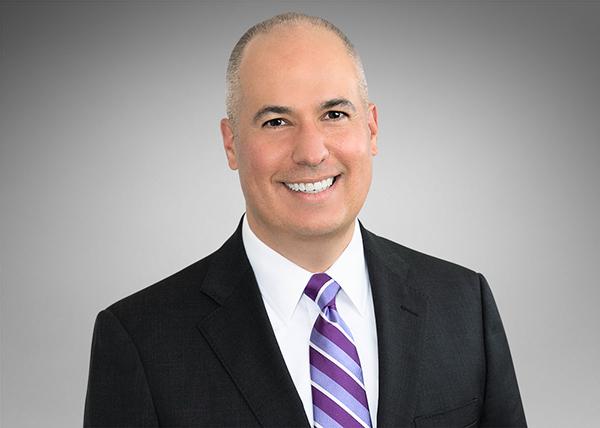In late December, Congress passed and the President signed into law the TRACED Act, which is aimed at curbing unwanted robocalls. The new law also directs the Federal Communications Commission (FCC) to revise certain rules under the Telephone Consumer Protection Act (TCPA) to accomplish this objective, but those revisions are not expected to change typical TCPA compliance practices.
The TRACED Act is expected to primarily affect the practices of telephone carriers and entities that transmit high volumes of robocalls. It could, however, have a broader effect on entities that transmit large volumes of calls, including live-voice calls. This is because the new law requires the adoption the SHAKEN/STIR call authentication framework that, depending on its implementation, can end up blocking calls from numbers that transmit high volumes of calls. The new law provides carriers with an incentive to block and label all such calls by providing them with a safe harbor from liability for such action.
The new law also directs the FCC to regularly monitor and update Congress on the progress that carriers have made in adopting call authentication frameworks, as well as call blocking and labeling measures. That, in turn, could result in the FCC applying increased pressure on carriers to take such actions. As a result, the TRACED Act could increase the risk that high-volumes of calls will be blocked or mislabeled as spam.
More specifically, the TRACED Act:
Call Authentication and Call Blocking
- Directs the FCC within 18 months of enactment to require telephone carriers to implement the SHAKEN/STIR call authentication framework, though it permits the FCC to exempt from this requirement any carrier that would suffer undue hardship as a result of its imposition—for example, because the carrier’s network relies on TDM rather than IP technology. However, any carrier so exempt still must adopt a robocall mitigation program to prevent unlawful robocalls from originating on its network.
- Directs the FCC to prohibit telephone carriers from charging consumers or small businesses for providing SHAKEN/STIR or other call authentication frameworks.
- Directs the FCC to, within one year of enactment, establish a safe harbor for telephone carriers that unintentionally or inadvertently block or mislabel telephone calls, and to establish rules governing the blocking and labeling of calls, including to provide consumers and callers with a redress mechanism.
- Directs the FCC to streamline the process by which telephone carriers can share information with the FCC regarding TCPA violations and calls that are not authenticated under SHAKEN/STIR.
- Directs the FCC to establish a registration process for an industry consortium tasked with leading industry efforts to trace back (i.e., determine the source of) unlawful robocalls.
Additional TCPA Rules for Robocalls
- Revises the FCC’s existing authority to exempt certain types of calls from the TCPA’s consent requirements to ensure that any such exemption includes limits on (1) who may make such calls, (2) who may receive such calls, and (3) the number of calls that an entity may place to a specific recipient.
- Directs the FCC to commence a proceeding to help subscribers avoid receiving unwanted robocalls from numbers that are not authenticated under SHAKEN/STIR, including the ability to block calls from unauthenticated numbers.
- Directs the FCC to determine whether its numbering policies could be modified to reduce access to telephone numbers for TCPA violators, and authorizes the FCC to promulgate regulations restricting access to numbers and imposing civil forfeitures for violations of such regulations.
- Directs the FCC to publish a report describing the progress it has made toward establishing the reassigned numbers database (a database that would allow callers to confirm whether a number they intend to dial has been reassigned to a different subscriber).
Increased Enforcement
- Expands the FCC’s authority to impose civil forfeiture penalties for violations of the TCPA. Previously, the FCC was unable to impose penalties on non-licensee first-time offenders; the TRACED Act removes that restriction and extends the applicable statute of limitations for FCC enforcement actions to four years. The law also grants the FCC authority to impose an additional civil forfeiture penalty for violations of the TCPA’s automated dialing provisions, with penalties up to $10,000 per intentional violation.
- Establishes an interagency working group charged with evaluating methods of increasing TCPA enforcement, including criminal prosecutions.
- Directs the FCC’s Enforcement Bureau to provide the Department of Justice with evidence of willful, knowing, and repeated robocall violations.
- Directs the FCC to commence a proceeding aimed at curbing “one-ring scams,” defined to mean “a scam in which a [typically overseas] caller makes a call and allows the call to ring the called party for a short duration, in order to prompt the called party to return the call, thereby subjecting the called party to charges.”
- Directs the FCC to establish the “Hospital Robocall Working Group,” aimed at reducing unlawful robocalls to hospitals.
If you have any questions concerning the material discussed in this client alert, please contact the members of our Communications and Media practice below.
Back
Back





